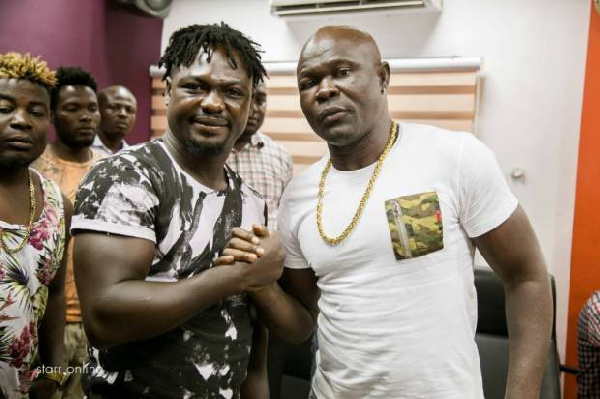It was at the Stadio San Nicola in Bari, on May 29, 1991, that one of the most anti-climactic evenings in the history of football unfolded. It had been the most eagerly anticipated European Cup final for half a decade, yet it ultimately left a watching world feeling short-changed.
Time tends to mask the nearly men of football. Just as with Saint-Étienne in the 1970s, there was a sense of a coronation unfulfilled for Olympique de Marseille in 1991. Their loss to Red Star Belgrade was the bitterest of pills to swallow.
It often goes unrecognised just how good Raymond Goethals’ Marseille side were. Tainted by their indelible association to the controversial figure of Bernard Tapie, the joy of their football and their position as the heir to AC Milan’s throne as the preeminent force in Europe is generally forgotten. When they were finally crowned European champions in 1993, it was with a heavily reconstructed side compared to the 1991 vintage. It was also a victory with a huge shadow cast over it. The Valenciennes match-fixing scandal would forever tarnish Marseille’s success.
Two years earlier, before being cast as footballing pariahs, Marseille were the envy of a watching continent. The accomplished display they put on at the San Siro against Arrigo Sacchi’s AC Milan in the European Cup quarter-final first leg was widely seen as a shifting of European football’s tectonic plates. Coming away from Milan with a 1-1 draw, the second leg was a massively anticipated event.
A fortnight later, the return tie at the Stade Vélodrome was forever embossed by Milan’s refusal to return to the pitch after a floodlight failure in the last minute of the game. Prior to Milan’s late and unseemly stand-off, a nervy – and at times untidy – game had been punctuated by a moment of collective genius from Marseille, a goal of bewitching beauty, which had been on the brink of settling the outcome.
Bernard Casoni carried the ball forward, laying it off to his left. From there a delicately clipped ball found its way to Jean-Pierre Papin, who was situated on the edge of the penalty area.

With space to bring the ball down and attempt a snap shot on goal, Papin instead intelligently opted to head the ball to his right, where it was met on the volley by Chris Waddle, just inside the angle of the Milan penalty area.
Waddle’s effort kept low with great precision, evading the despairing right hand of Sebastiano Rossi to squeeze just inside the Milan goalkeeper’s right-hand post. It was a goal of immense joy for Marseille, symbolic of the understanding which had evolved between what had become an almost divine triumvirate at the Vélodrome.
The facilitator of the move, the man who had delicately clipped the ball from the left touchline to Papin, and who joined the Frenchman and Waddle in what became known as ‘The Magical Trio’, was the hypnotically talented Abedi Ayew; otherwise known as Abedi Pele.
The Ghanaian was blessed with the seemingly God-given gift of ball ownership. That intangible quality where the ball appears to be a natural extension of the body, when so at ease does the player in question look in possession that opposing defenders become petrified caveman confronted by the concept of fire for the first time. So profound was his talent that his adoption of the nickname ‘Pele’ has never felt like egotism or false praise.

On that tempestuous evening against Milan in March 1991, Ghana’s favourite footballing son was widely billed as something of an overnight success. Nothing could have been further from the truth, however.
With his 27th birthday looming on the horizon, it had taken Abedi almost a decade to reach such dizzying widespread recognition. Adored in his home nation, he was all too often deemed as having unfulfilled potential in France, and his road to the top of the game had been something of a winding one.
A winner of the 1982 Africa Cup of Nations as a raw but preciously talented 17-year-old, he was used as an impact substitute on the way to Ghana defeating the hosts Libya in the final. He had come to prominence having made his debut for Real Tamale United at the age of just 15, going on to force his way into his national squad where he would remain for the next 14 years.
Unwittingly, however, the peak of Abedi’s international career was reached at its very outset. After going out during the group stages of the 1984 Cup of Nations as holders, Ghana failed to qualify for the finals again until 1992 in Senegal. As one of the finest players in Europe, he led his country all the way to the final, where in his absence due to suspension they lost on penalties to the Ivory Coast.

At a time when Ghana were beginning to rise as a force, Abedi was also unfortunate to be denied the biggest stage of all through a succession of failed attempts to reach the World Cup finals. He was particularly unfortunate to miss out on the finals of USA 94, when, in the decisive qualifier against Algeria, Ghana came within five minutes of qualification before succumbing to a late goal.
While frustrated so often on the international stage, Abedi Pele would not be stifled in club football. He bravely left his homeland aged 17, signing for Al Sadd in Qatar for whom he scored freely. After attracting the interest of FC Zürich, he was one of the very few bright points of a forgettable season for a club which had dominated Swiss football in the mid-to-late 1970s, and whose last title win had been as recent as 1981.
After just one season in Switzerland, and perhaps in an instance of too much, too soon, Abedi returned to Africa, firstly in Benin with Dragons I’Ouémé, and then answering the call to return home to Real Tamale. Through all the upheavals, the goals continued to flow, and his return to Ghana would prove to be a sweeping visit.
In 1986, Abedi set off for Europe once more, joining Chamois Niortais, where in his one season at the club, he helped them to promotion to the French top flight. However, instead of taking him into the limelight, Niort opted to sell Abedi Pele to fellow French Second Division side FC Mulhouse.
Niort lived to regret the sale, suffering relegation at the first attempt, and watching on helplessly as Marseille swooped for the services of their former player. The move was shrouded in controversy, when legend has it that Tapie spread a rumour that his transfer target had failed a previous HIV test. It was enough for Monaco to cool their interest, leaving the field open for OM to swoop.

The collapse of a temporary stand at the Armand Cesari Stadium led to the deaths of 18 spectators. It was a horrific event, and another shadow within which Goethals’ Marseille tends to find itself enveloped. His was a side destined to never be as celebrated as it should be.
When Marseille were crowned champions of Europe a year later, it was without Papin – who was on duty for Milan that evening – or Waddle, who had returned to England with Sheffield Wednesday. It was a very different Marseille, in a similar way to how the Denmark of Euro 92 was vastly different to the vintages of Euro 84 and Mexico 86. Those magical entities fell just short, only to see a more pragmatic version prevail a short time later.
In the wake of the match-fixing revelations, something Tapie still denies, Abedi Pele returned to a nomadic footballing existence. An unsatisfactory year with Lyon was followed by a move to Serie A with Torino, where he spent two seasons, the second of which ended in relegation. Two years in the Bundesliga followed at 1860 Munich as he helped the Lions qualify for the UEFA Cup, before winding down his career in Abu Dhabi with Al Ain.

Towards the end of Abedi Pele’s time with Torino, he had one last attempt at international glory at the 1996 Cup of Nations. In South Africa, Ghana made the semi-finals, where they exited the tournament to the host nation. It was a heroic effort and a fitting way to step aside for a younger leader to carry his beloved country forward.
Beyond his playing days, Abedi has had a conflicting presence within the game. Handed ambassadorial roles within the Ghanaian FA, which he later relinquished, he was also involved in South Africa’s successful bid for the 2010 World Cup. Yet, as a club owner, there was controversy aplenty. Suspicion was aroused as his team, Nania FC, won a crucial final-day promotion encounter with Okwawu United by a score-line of 31-0, on the same day as chief rivals Great Mariners defeating Tudu Mighty Jets 28-0. Both clubs were heavily fined and relegated to Ghana’s third tier. Much recrimination followed, and Abedi attracted uncharacteristic animosity in some quarters.
Abedi Pele was wonderfully unpredictable as a player, and he continues to deliver the unexpected. Arguably the finest footballer Ghana has ever produced, he was a crucial component in the most aesthetically pleasing team Marseille ever fielded. He has walked a career path where some of his greatest moments have been overshadowed by questionable ethics and shattering near-misses. His talent was unmistakable, however. At his peak, he owned the ball in a manner that was slowly dying out, and he was an absolute joy to watch.
 |
For more news go to: www.graphic.com.gh |








